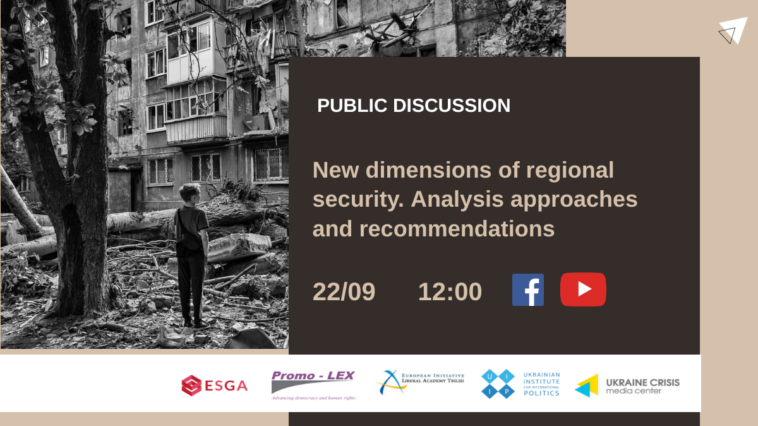On February 24, 2022, Russia launched an unprovoked war of aggression against the sovereign state of Ukraine. The scale of the political and economic consequences of the Russian war against Ukraine is unprecedented for the whole world. After 6 months of hostilities in the center of Europe, the largest since the end of the Second World War, this war took the lives of tens of thousands of civilians and soldiers, at least 8 million Ukrainian citizens were forced to become internally displaced persons, and at least another 5 million became refugees in EU countries.
First, the information policy requires quality strategic communication and interaction of all public authorities and civil society from the Ukrainian government in the context of intensifying Russian disinformation campaigns aimed at undermining the trust of Western communities and governments in Ukraine and discrediting the Defense Forces of Ukraine. Secondly, energy policy needs clear steps to prevent Russia from using the largest Zaporizhian nuclear power plant in Europe to turn it into a military facility and transforming the conflict from conventional to nuclear. This creates particularly dangerous risks for European macro-regional security. In addition, against the background of the war, Russia intensified gas blackmail of European countries, forcing them to refuse political and military support to Ukraine. Thirdly, the current situation in the migration sphere, namely the large number of refugees from Ukraine, complicates the socio-economic situation in European countries and, under the condition of low-quality migration and communication policy, can have a negative impact on Ukraine’s foreign policy position. Solving the migration problem requires a comprehensive approach from the Ukrainian and European governments.
For Ukrainian state authorities, the war has become a key challenge to the ability to ensure the effective operation of all public institutions, defense, economy, law and order, and diplomatic efforts. The war affected every Ukrainian and every sphere of public life in Ukraine. Loss of 20% of territories, millions of internally displaced citizens in a threatening socio-economic condition, daily attacks on critical infrastructure and civilian objects became a reality where the government and civil society has to function in. Today, up to a million Ukrainians are involved in repelling Russian aggression, the armed forces maintain high morale and operational defense capability, and the army is rapidly replenished with new effective means of attack. It is obvious that Ukraine is not ready to sacrifice territories for the sake of appeasement of the aggressor, and the President of Ukraine emphasizes the full restoration of the territorial integrity of the state. For its part, Russia also shows no intention of ending the active phase of the war or transferring it to a frozen phase, which indicates the prospects of turning the conflict into a medium- or long-term one.
Therefore, the Ukrainian Institute for International Politics, together with our partners, are carrying out a comprehensive analysis of the modern war and its consequences for Ukraine and Europe as a whole. The purpose of this event is to highlight different points of view and interpretations regarding the unfolding of the Russian-Ukrainian war, so that the experts involved in the project could later define new priorities and visions for solving national security issues.
To achieve this goal, the organizers of the event invite representatives of Ukrainian state institutions, other governments’ representatives, and representatives of non-governmental organizations to present their positions on the various dimensions of the Russian-Ukrainian war in a public discussion.
Speakers’ speeches will last a maximum of 7 minutes. In addition, participant comments of up to 2 minutes are encouraged to make the interaction between speakers and guests as inclusive as possible.






